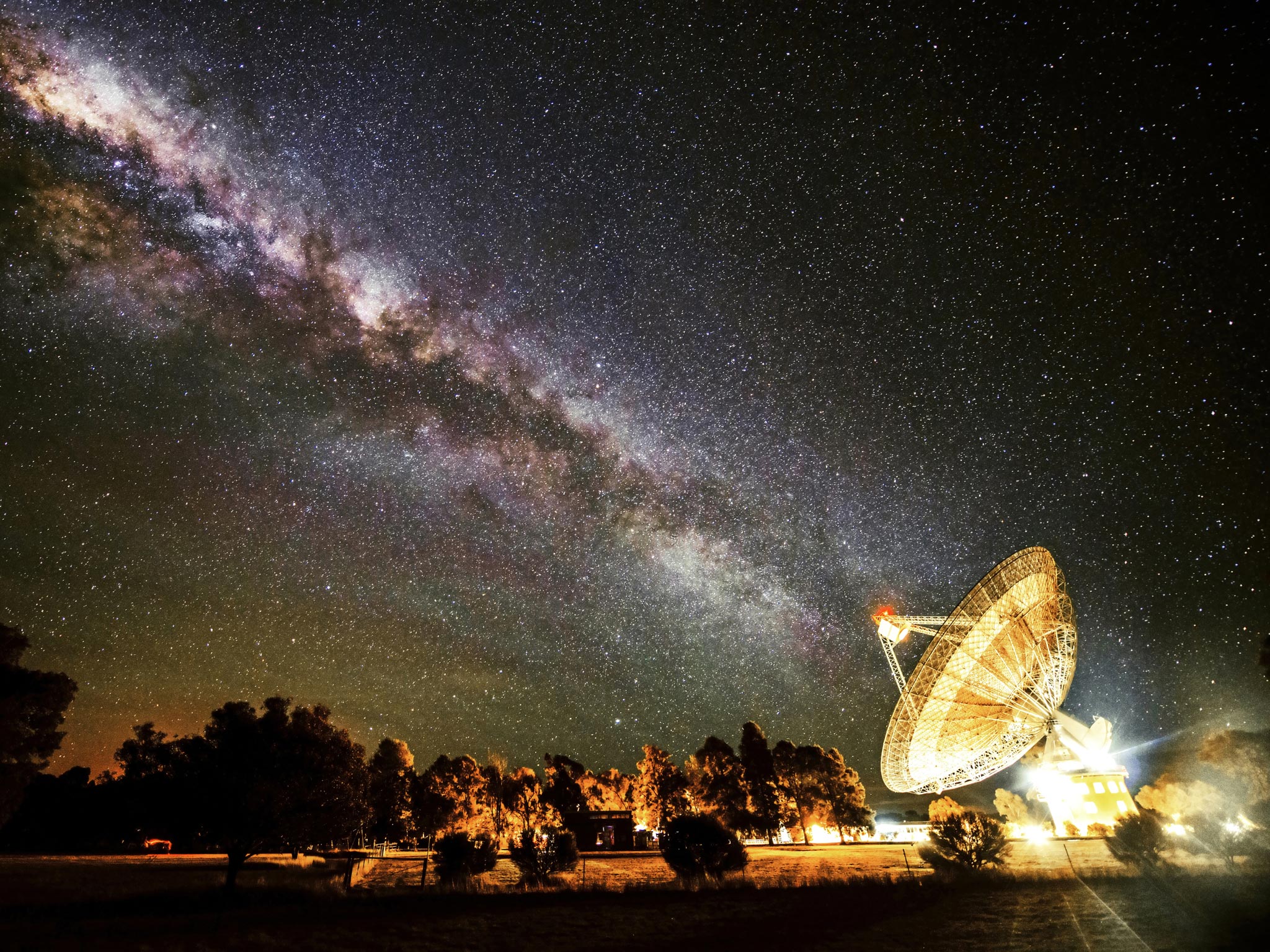Scientists receive message from aliens — but turns out to be interference from their microwave
But the finding means that some of the messages could have been coming from outside of our galaxy, after all

Until now, scientists have been mystified by the origin of “perytons” — intense but short bursts of energy that seemed to be coming from outer space. But the message wasn't from aliens at all, coming instead from their microwave.
Scientists have found that the origin of the perytons was in fact a microwave. When the door was opened prematurely and if the telescope was set at a certain angle, the two interacted to give the appearance of the huge perytons.
Researchers have long been mystified by the perytons because they confused how scientists understood “fast radio bursts” (FRBs) — genuine messages from outer space that are still not explained. Those messages appear to be coming from outside of our galaxy, but the perytons didn't fit with that interpretation.
The discovery that the messages were actually coming from microwave ovens as they were shutting down means that scientists have been able to rule out the perytons as alien messages.
And since they now know for sure that the microwaves on the site of Australia's Parkes Observatory haven’t been creating the mysterious fast radio bursts, they can get back to studying the FRBs, which they say “are excellent candidates for genuine extragalactic transients”.
FRBs, or blitzars, are huge bursts of energy that seem to be coming from up to 5.5 billion light years away. Scientists aren't sure where they're coming from, but they seem to be aligning in a pattern that doesn't fit with current understandings of astrophysics.
The findings were detailed in a paper published by Emily Petroff. Petroff led a team that heard the first of the messages live, as they happened, which they reported in January.
Join our commenting forum
Join thought-provoking conversations, follow other Independent readers and see their replies
Comments
Bookmark popover
Removed from bookmarks